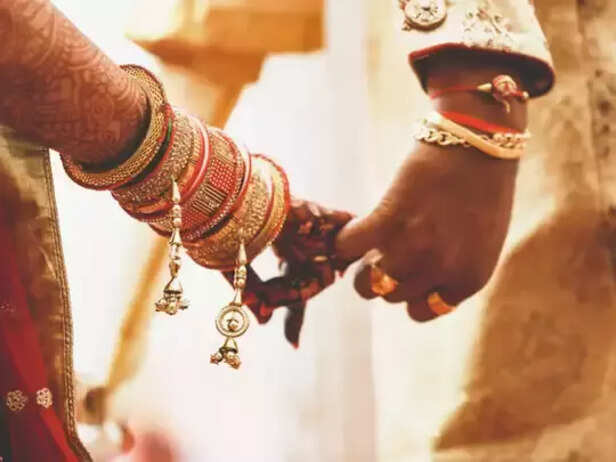Why the Smartest Indians Are Walking Away from Tradition (And Finding True Freedom)
Riya Kumari | Mar 11, 2025, 23:56 IST
So, picture this: You’re at yet another wedding, sipping overpriced mango juice, listening to some well-meaning uncle wax poetic about "the way things have always been." You nod, you smile, you pretend to care. But deep down, something in you is screaming—why are we still doing this? If you’ve ever had that moment, congratulations. You’re officially part of a growing club: Indians who are walking away from tradition—not in some rebellious, dramatic, "I renounce my culture" way, but in a far smarter, smoother, "I’ll take what works and leave the rest" kind of way.
There’s a moment that comes in every thinking person’s life. A shift. A realization. You’re sitting at a family gathering, listening to elders repeat the same lines you’ve heard since childhood—about duty, about sacrifice, about “this is just how it is.” But this time, something is different. This time, you actually stop and ask: "But… why?"
1. Because Not Everything That’s Old Is Sacred

Why must I follow this path, simply because it was walked by those before me? Why is questioning seen as rebellion rather than evolution? Why does tradition feel less like a guiding light and more like a weight we carry—without ever asking if it still serves us?
And this, right here, is the quiet revolution happening in countless Indian minds. The smartest among us are walking away—not from culture, not from values, but from blind obedience. They are choosing what makes sense, letting go of what doesn’t, and in doing so, they are discovering something remarkable: freedom.
2. The Illusion of "The Right Way"

For centuries, tradition has been presented as truth. Not one possibility among many, but the way to live. The right age to marry. The correct career choices. The acceptable way to express love, worship, ambition, grief. Deviate, and you risk being labeled lost, selfish, or worse—Westernized.
But here’s the truth few dare to admit: Much of what we call “tradition” was never about wisdom. It was about control. About maintaining order in societies that feared change. What was once practical became sacred. What was once flexible became rigid. And what was once meant to guide became a rulebook that punishes those who outgrow it. But what happens when people start thinking for themselves? What happens when the brightest minds stop accepting "because that's how it's always been" as a valid answer? They don’t rebel. They simply walk away.
3. Walking Away Isn’t Abandonment. It’s Discernment

To walk away from tradition isn’t to reject culture. It’s to refine it. To ask, What is worth keeping? What is worth leaving behind? Because not everything old is wise, and not everything new is reckless. Take spirituality. For generations, we’ve been told to follow rituals without question. But the modern seeker doesn’t just fold hands out of habit; they search for meaning. They read the Gita, the Upanishads, Rumi, Osho, even quantum physics—because they are after truth, not just tradition.
Or look at relationships. The old belief was that family is everything, no matter the cost. But the new generation understands that family isn’t about duty, it’s about connection. Love without respect is not love. A relationship without boundaries is not sacred, it’s suffocating. And walking away from toxic family patterns isn’t betrayal—it’s self-respect. This is the shift. This is why so many are stepping away—not from values, but from the parts of tradition that ask us to shrink rather than expand.
4. The Real Meaning of Freedom

Freedom isn’t just about breaking rules. It’s about choosing which rules are worth keeping. Some traditions are worth preserving. The wisdom of our texts. The power of our spiritual practices. The beauty of our storytelling, our connection to nature, our sense of community. These are not things to discard; they are things to deepen, to modernize, to make more accessible.
But the guilt, the shame, the fear of questioning? That must go. Because tradition should be a living, breathing thing—something that grows with us, not something that demands we stay small for its sake. And those who understand this? They are not lost. They are not betrayers of culture. They are the ones keeping it alive.
A Culture That Evolves, or a Culture That Fades?
In the end, every civilization faces a choice: evolve or fade. The cultures that survive are not the ones that resist change, but the ones that adapt while keeping their essence intact. India has always been a land of seekers, thinkers, questioners. Our ancestors debated philosophy under trees, not in locked rooms with closed minds. They explored, experimented, challenged—even the gods themselves. To walk away from outdated traditions is not to reject our heritage. It is to honor its truest spirit. And maybe, just maybe, that’s the real tradition worth keeping.
1. Because Not Everything That’s Old Is Sacred

Truth
( Image credit : Pexels )
Why must I follow this path, simply because it was walked by those before me? Why is questioning seen as rebellion rather than evolution? Why does tradition feel less like a guiding light and more like a weight we carry—without ever asking if it still serves us?
And this, right here, is the quiet revolution happening in countless Indian minds. The smartest among us are walking away—not from culture, not from values, but from blind obedience. They are choosing what makes sense, letting go of what doesn’t, and in doing so, they are discovering something remarkable: freedom.
2. The Illusion of "The Right Way"

Tradition
( Image credit : Pexels )
For centuries, tradition has been presented as truth. Not one possibility among many, but the way to live. The right age to marry. The correct career choices. The acceptable way to express love, worship, ambition, grief. Deviate, and you risk being labeled lost, selfish, or worse—Westernized.
But here’s the truth few dare to admit: Much of what we call “tradition” was never about wisdom. It was about control. About maintaining order in societies that feared change. What was once practical became sacred. What was once flexible became rigid. And what was once meant to guide became a rulebook that punishes those who outgrow it. But what happens when people start thinking for themselves? What happens when the brightest minds stop accepting "because that's how it's always been" as a valid answer? They don’t rebel. They simply walk away.
3. Walking Away Isn’t Abandonment. It’s Discernment

Marriage
( Image credit : Pexels )
To walk away from tradition isn’t to reject culture. It’s to refine it. To ask, What is worth keeping? What is worth leaving behind? Because not everything old is wise, and not everything new is reckless. Take spirituality. For generations, we’ve been told to follow rituals without question. But the modern seeker doesn’t just fold hands out of habit; they search for meaning. They read the Gita, the Upanishads, Rumi, Osho, even quantum physics—because they are after truth, not just tradition.
Or look at relationships. The old belief was that family is everything, no matter the cost. But the new generation understands that family isn’t about duty, it’s about connection. Love without respect is not love. A relationship without boundaries is not sacred, it’s suffocating. And walking away from toxic family patterns isn’t betrayal—it’s self-respect. This is the shift. This is why so many are stepping away—not from values, but from the parts of tradition that ask us to shrink rather than expand.
4. The Real Meaning of Freedom

Shadi
( Image credit : Times Life Bureau )
Freedom isn’t just about breaking rules. It’s about choosing which rules are worth keeping. Some traditions are worth preserving. The wisdom of our texts. The power of our spiritual practices. The beauty of our storytelling, our connection to nature, our sense of community. These are not things to discard; they are things to deepen, to modernize, to make more accessible.
But the guilt, the shame, the fear of questioning? That must go. Because tradition should be a living, breathing thing—something that grows with us, not something that demands we stay small for its sake. And those who understand this? They are not lost. They are not betrayers of culture. They are the ones keeping it alive.
